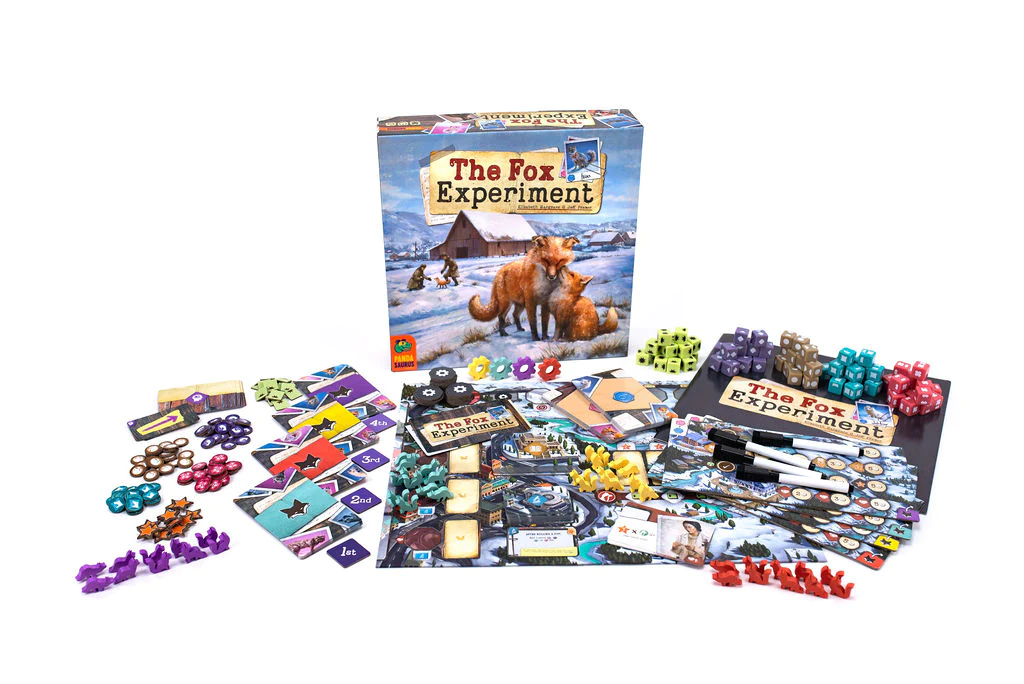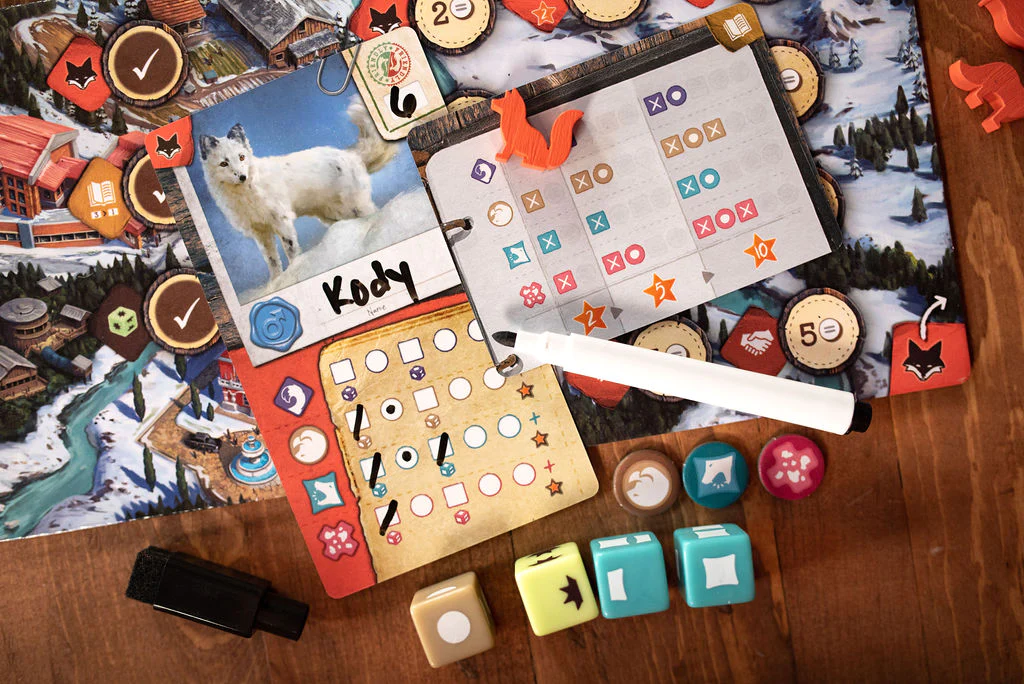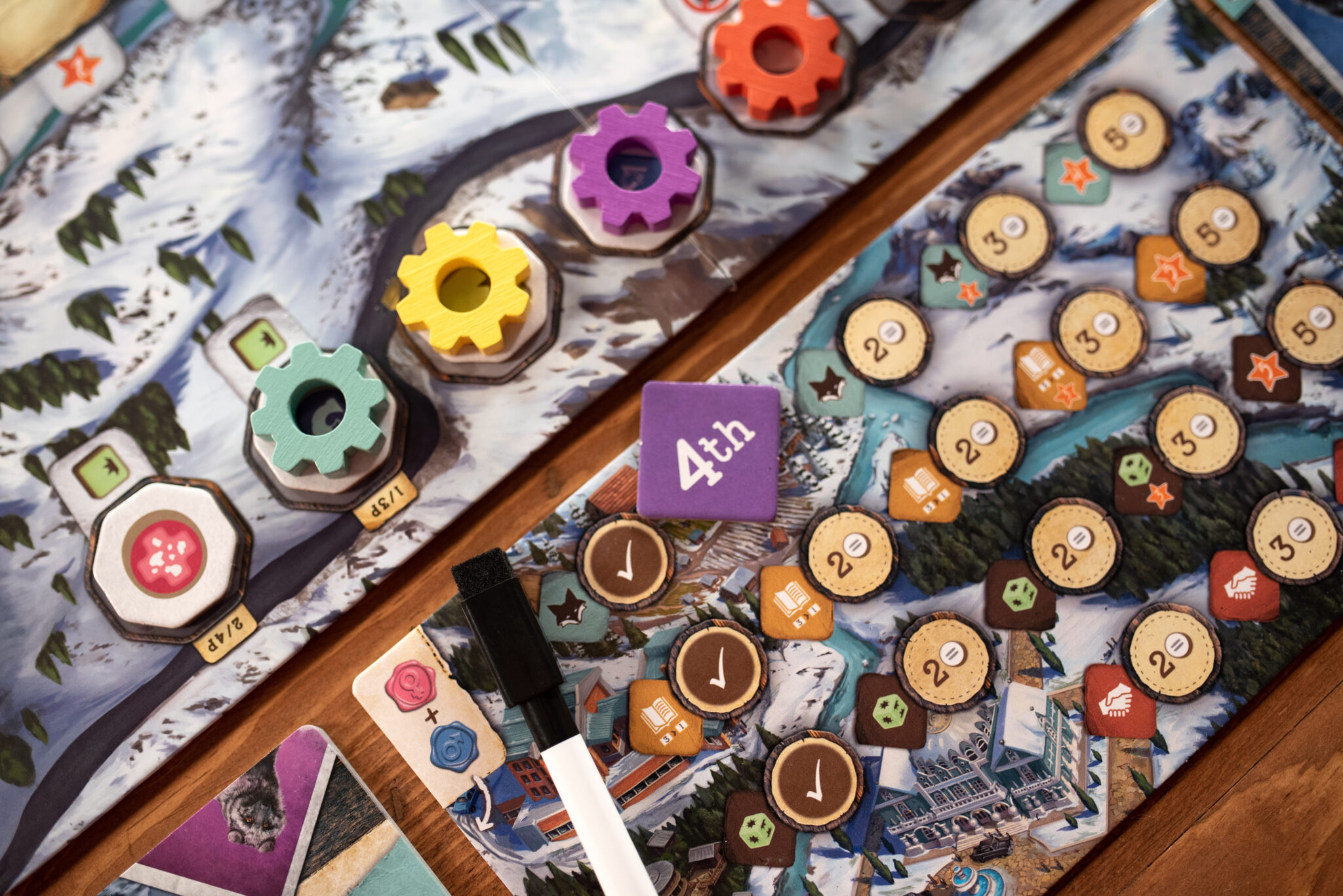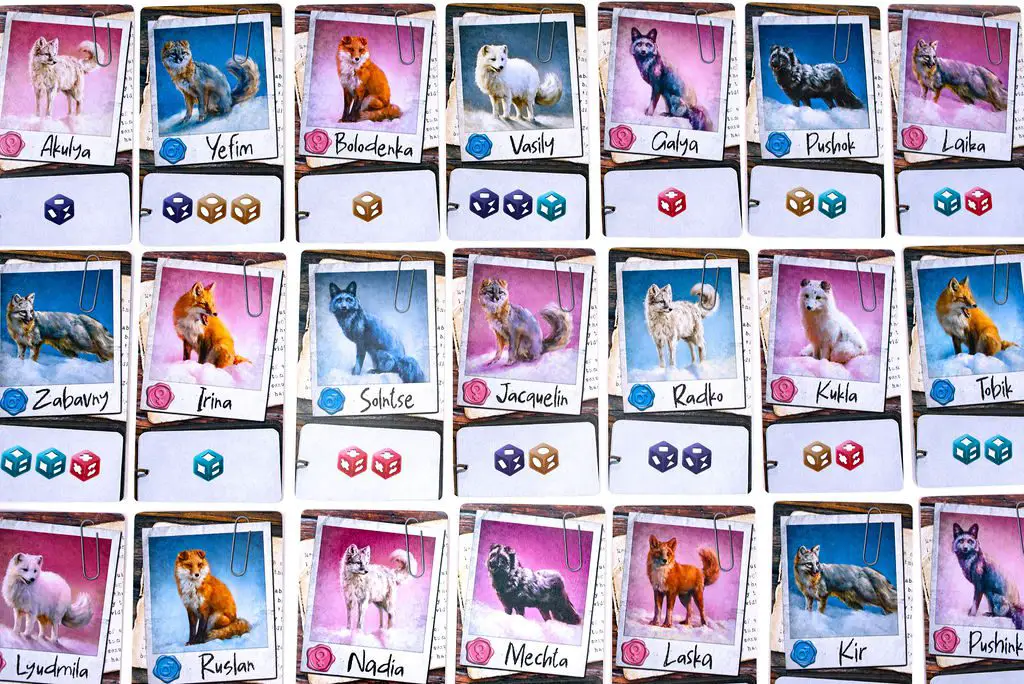Sometimes you feel sucked in by a game almost despite your regular reservations. The Fox Experiment, one of Pandasaurus’s biggest releases of 2023, was a game that on its face could have been a big miss for me. I love Elizabeth Hargrave’s work (even without Wingspan, work like Tussie Mussie is so good) and I do like cute foxes…but a roll-and-write? And one that revolves around an obscure (but actually super-interesting) bit of Soviet scientific history? It turns out I should have never doubted Pandasaurus or Hargrave, as once I got the game out and played it a couple times I found it to be an engaging and surprisingly accessible spin on the roll-and-write genre.
What’s In The Box?

- Double sided main board
- 167 Cards
- 4 player boards
- 4 black dry erasable markers
- 208 tokens
- 1 Rulebook
I love Joe Shawcross’s art for this game. It’s not cartoony like a lot of Pandasaurus’s art, but neither is it as hyper-realistic like so many more scientific games seem to go with. Instead it evokes a soft, warm feeling even as the scenes depict a snowy Russian winter. This is the sort of art you would be happy to hang up in your home. And the foxes themselves? Exactly as cute and huggable as you’d want, but still majestic in their own way. Plus there’s fox meeples so…what else can you ask for?
How’s It Play?

The Fox Experiment is basically a roll-and-write, where most of the movement and choices of the game rely on the results of a dice roll. But this isn’t like most other roll-and-writes and as it brings in several other strategic elements to help curtail some of the randomness that dice can bring in. Each player is working as a researcher working on an experiment, with the goal being to breed the best traits into the friendliest foxes just like was done in real life.
The first phase is selection, where you pick your breeding pair as well as your place in the turn order on the supply track (which also gives you different bonuses depending on your position). As the game goes on, this seemingly innocuous start becomes more important as you breed new generations with different traits moving forward.
Phase 2 is breeding, the only phase to actually feature rolling. In this you’ll draw one of your (extremely cute) blank pups and then roll the trait dice to see what they’ll get. These traits are tails (curled up and wagging), ears (staying floppy), Barking (reactions to humans) and spots (sort of an aesthetic trait). You’ll also roll “friendliness” dice to help with that trait. The different ways the dice symbols combine dictate how many traits you have to assign to a pup and the number of dice rolled is dictated by the parents. You’ll assign the results to your pup and then, in my favorite little detail, name them as well. The cool thing about the way The Fox Experiment is set up is that the “writing” part of the game is directly on the cards themselves. It’s a little more interesting than the traditional pad-o-paper you get with most in this genre.

Phase three is Research, where everything starts coming together. Here you’ll use your new pups in studies, with their assigned traits contributing to each level and earning you victory points. The higher you go, the more traits needed, the better breeding needs to be done with your foxes. You also will gain trait tokens here, which help you unlock new upgrades to make your experiments easier. These are things like more pups, a patronage scoring bonus, or more friendly dice for the breeding round. The round ends with a clearing and refill of the kennels and the giving of friendliness rewards that earn you helpful tokens. The game ends after five rounds, with final scores determined by study success, patronage, number of upgrades, overall friendliness, and extra supplies.
The Verdict?

I really like what this game is doing, especially as someone who can sometimes struggle with roll-and-writes. The Fox Experiment doesn’t solve some of my bigger problems with the genre (players still don’t really interact much), but it does make things pretty lively and adds a lot of great strategic thinking in. Dice rolling can make things more egalitarian, but it can also make things extremely frustrating. So letting you hedge your bets and make important moves without the dice is always helpful.
I also appreciate how perfectly the game captures the theme. You really get to act out an experiment in miniature with all the trial and error that entails. There’s a lot of fun to be had tinkering with combinations, making the right choices, and figuring out how to get things perfect. It’s a pretty quick and easy game to learn but the number of variables (and luck) means you can have a lot of fun trying different approaches. Each game, like each new generation of cute baby foxes, will be a little different.
You can grab The Fox Experiment from the Pandasaurus Shop, Amazon, or your FLGS!
Images via Pandasaurus Games
Have strong thoughts about this piece you need to share? Or maybe there’s something else on your mind you’re wanting to talk about with fellow Fandomentals? Head on over to our Community server to join in the conversation!

